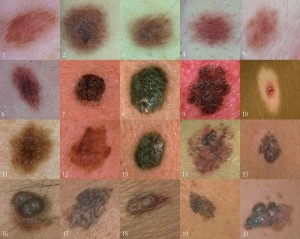Skin cancer is the most common type of cancer in the UK. The main cause is excessive exposure to the sun’s harmful ultra violet (UV) radiation. There are around 100,000 new cases every year. 8000 of these cases are the most serious form, malignant melanoma.
Around 2,000 people a year die as a result of skin cancer. It is impossible to say how many of these cases are a result of exposure to the sun at work, but it is becoming much more common in people who work outdoors.
The skin is damaged if a person burns or spends too long in the sun. Although fair-skinned or freckled people are more likely to burn, too much exposure can damage anyone’s skin and increase their chance of developing cancer.
Many outdoor workers, in particular agricultural workers may be employed through agencies. Where this happens, both the agency and the employer will have a legal duty to protect the worker.
Preventing skin cancer
The TUC believes that no person should be exposed to anything that can cause cancer during their work and that employers have a duty to ensure that they remove the risk. That applies just as much to excessive sun exposure as dangerous chemicals.
Employers have always argued that they cannot control exposure to the sun and that it is up to individual workers what they wear. They also claim that it is unfair and impractical to ask workers to cover up in very hot weather. This is not true. In practice there is a lot employers can do, but measures must be introduced with the full involvement of safety representatives.
Simply telling workers they must cover up or wear sunscreen is not going to be effective in itself unless there is also a campaign to explain the dangers to the workforce, however many employers have been successful in reducing exposure by looking at the working practices rather than that just putting the responsibility on the worker.
Among things employers can do to reduce the risk are:
Changing working practices so that less outside work needs to be done either in the hottest months or the hottest time of the day
Provide canopies, sheeting, or similar covering over open areas such as building sites where people are working
Provide information and guidance on avoiding exposure to harmful UV radiation both as part of induction and on an on-going basis. The HSE has produced a useful leaflet giving advice on outdoor worker and sun protection; www.hse.gov.uk/temperature
Make sure that any protective clothing is lightweight, long-sleeved and comfortable, but at the same time dense enough to prevent UV rays from getting through. It should also allow body heat to escape. This will encourage workers to wear it.
Provide lightweight brimmed hats for all outdoor workers.
Where work is required to be done outdoors in sunny weather, employers should provide dispensers with sunscreen and workers should be encouraged to apply it regularly on any exposed areas. Sunscreen should have a sun protection factor of at least 20 and preferably 30 but also give protection against UVA radiation (some don’t). Workers should be given a choice of sunscreens where possible.
These measures will be most effective if the workforce is involved in the decisions, in particular on types of clothing and sun-screen provided.
Cancer Research UK have very useful information on skin cancer and also run the “SunSmart” campaign at www.cancerresearchuk.org/sunsmart
